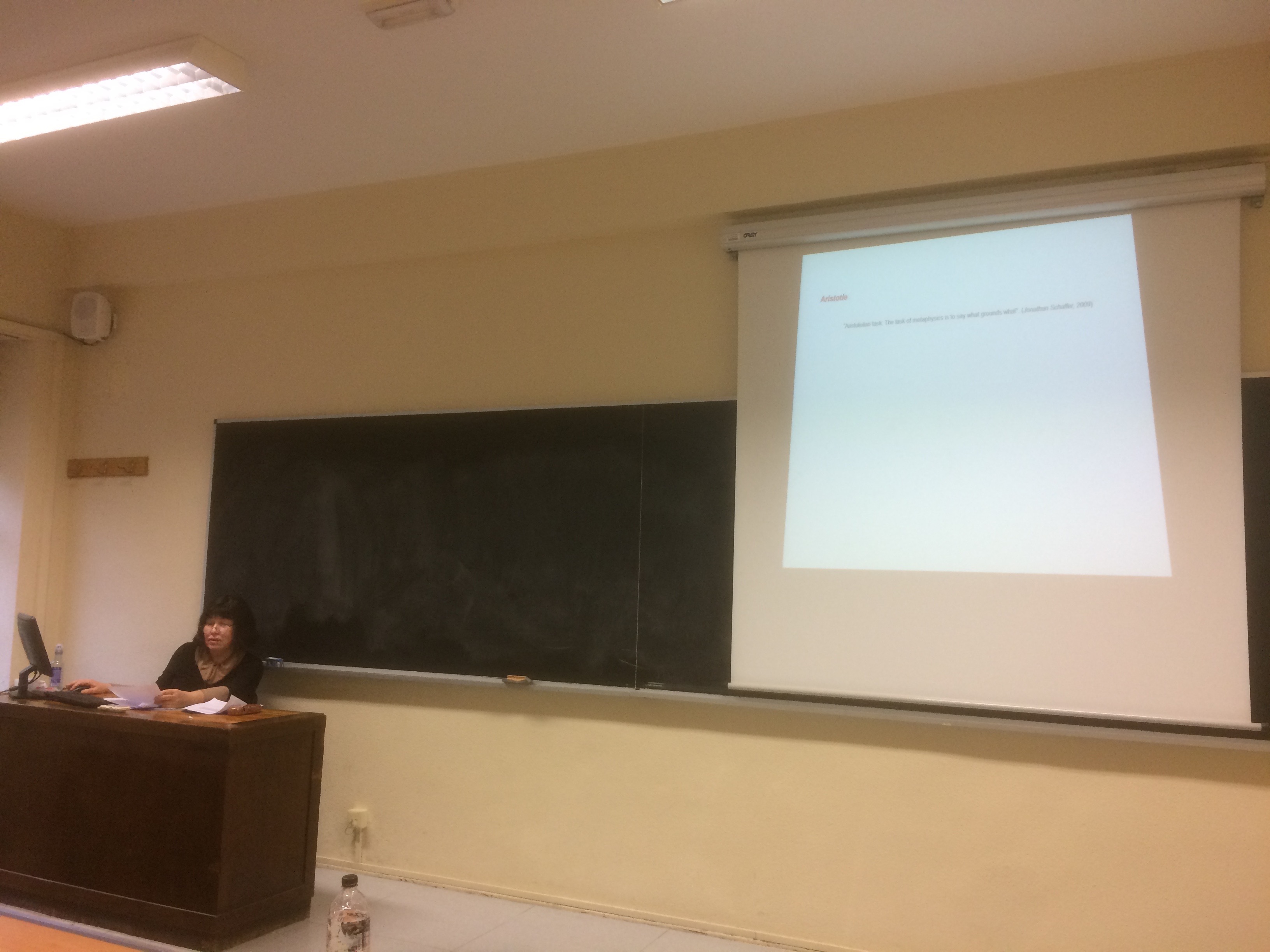Елена Драгалина-Черная выступила с научными докладами в университетах Барселоны и Мадрида
Доклад "The Variety of Logical Hylomorphism: Formal Ontology vs Formal Deontology" был сделан в Университете Барселоны на теоретическом семинаре исследовательского проекта “Worlds and Truth Values: Challenges to Formal Semantics”. На исследовательском семинаре "Formal Philosophy" Мадридского университета Комплутенсе Елена Драгалина-Черная сделала доклад "The House that Carroll Built: Regress and Adoption in Formal Grounding".
Доклад "The Variety of Logical Hylomorphism: Formal Ontology vs Formal Deontology".
Аннотация:
This paper addresses the dichotomy of substantial and dynamic logical hylomorphism. Substantial hylomorphism considers logic as a theory of higher order formal objects which turns their structural properties into formal laws of reasoning. Dynamic hylomorphism refers to goals-directed and rules-governed actions of reasoning agents rather than to objects.
The talk will be in two parts. First, I’ll focus on the historical roots of substantial hylomorphism. I’ll try to reveal several paths of mediation between scholastic dichotomy of consequentia formalis and consequentia materialis, on the one hand, and model-theoretical approaches to logical consequence in modern logic, on the other hand. Then I’ll address isomorphism-invariance criterion for logical notions in generalized model theory. I’ll suggest considering abstract logics (an abstract logic consists of a collection of structures closed under isomorphism, a collection of formal expressions, and a relation of satisfaction between the two) as formal ontologies, as well as classifications. Second, I’ll argue for the advantages of shifting focus from formal ontology to formal deontology. Logic as formal deontology is about formal agency rather than about formal properties and behavior of objects. The real medium of formal deontology is not sets of objects, the formal features of objects, or even their formal behavior, but acting agents. Proof-theoretic and game-theoretic approaches to formal deontology will be compared.

"The House that Carroll Built: Regress and Adoption in Formal Grounding".
Аннотация:
This talk addresses Lewis Carroll's puzzle of infinite regress of inference described in his essay What the Tortoise said to Achilles. Carroll offered no solution for his puzzle, but in the letter to G. F. Stout, the editor of Mind, he appeals to the metaphor of the house that Jack built for clarification. In my talk I'm trying to answer the question: what architectural features of the house that Carroll built prevent the Tortoise from entering and leaving it, successfully deducing the conclusion from the given premises.
The talk will be in three parts. Firstly, I’ll focus on the problems with the foundation of this house. I am going to demonstrate that the discussions on infinite regress of inference, which is caused by turning а rule of inference into an additional premise of that inference, roots in the ancient and medieval topical discussions. I’ll try to show the limitations of overcoming this regress in Bernard Bolzano's theory of formal grounding, in Charles S. Peirce’s doctrine on guiding principles of reasoning, and in Gilbert Ryle’s dispositional interpretation of logical knowing as knowing how. Secondly, I’ll address the house entrance problem as a part of Saul Kripke’s adoption problem. I’ll suggest considering as misleading the opposition of the exhaustive logical knowing how and its total absence. Thirdly, I’ll focus on the problem of leaving the house that Carroll built. I’ll try to reveal the inconsistency that Kripke’s interpretation of the “Cartesian” procedure of revising logical principles has with René Descartes’ theories of deduction and eternal truths. Finally, I’d like to discuss Ludwig Wittgenstein’s dynamic perspective on the adoption problem.
